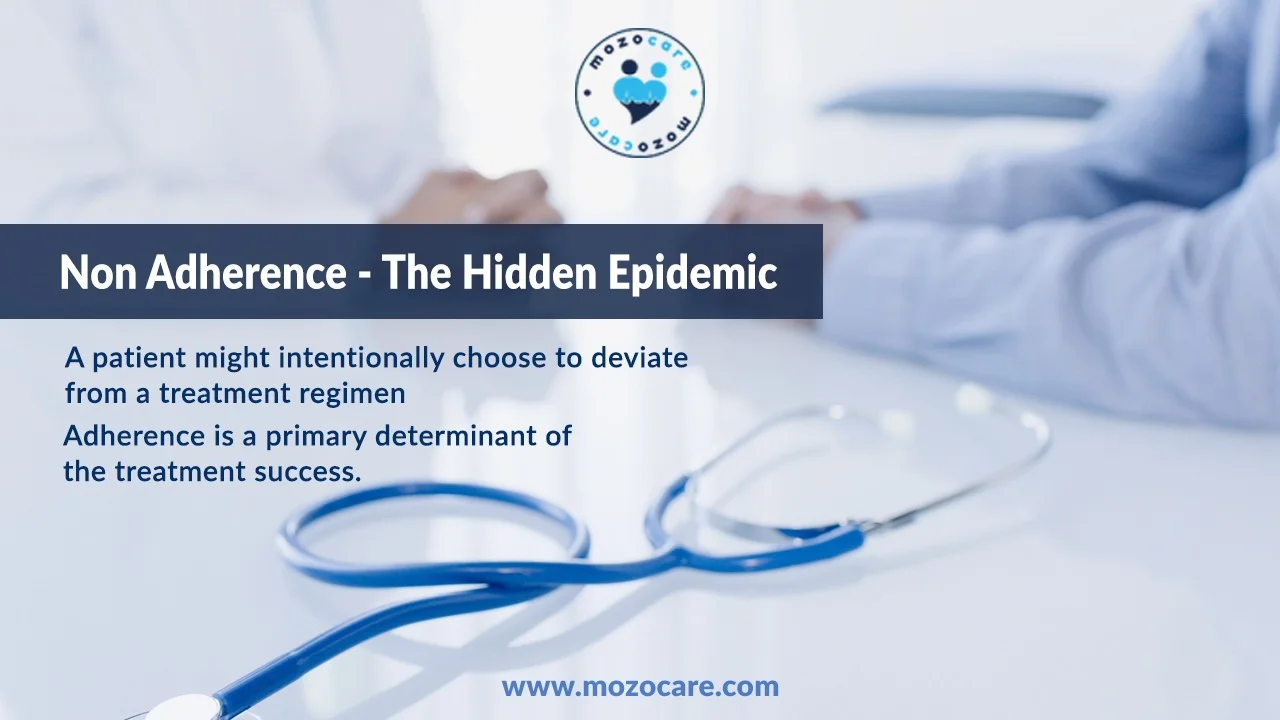
Globally, millions of medications prescriptions are issued every day. But the majority people do not take their medications as prescribed. As a result, it causes huge amount of unnecessary physical and emotional suffering, financial loss, and premature deaths.
This hidden epidemic ” Non-Adherence” or call it “the silent killer” requires more attention at time when world stage is taken over by SARS-CoVid
Non-Adherence refers to the failure or refusal of a person to follow a prescribed or recommended course of treatment, medication, or lifestyle change. It can refer to any situation where a person does not comply with a recommended course of action, whether intentional or unintentional.
Non-adherence can have serious consequences for the individual’s health, as well as for the effectiveness of the treatment or intervention being prescribed. Common reasons for non-adherence include forgetfulness, lack of understanding about the treatment, fear of side effects, and cost. Healthcare providers may work with patients to identify and address any barriers to adherence in order to improve health outcomes
There are many factors that can contribute to non-adherence, and they can be grouped into several categories:
Effective management of non-adherence requires addressing the specific factors that are contributing to the problem, which may involve a multidisciplinary approach that includes the patient, healthcare providers, and caregivers.
Choosing the right hospital is one of the most important decisions you make in your medical treatment journey. Mozocare, helps you in making the right decision. A care manager is 24×7 available to answer your questions or to be there with you if you would just like to talk.